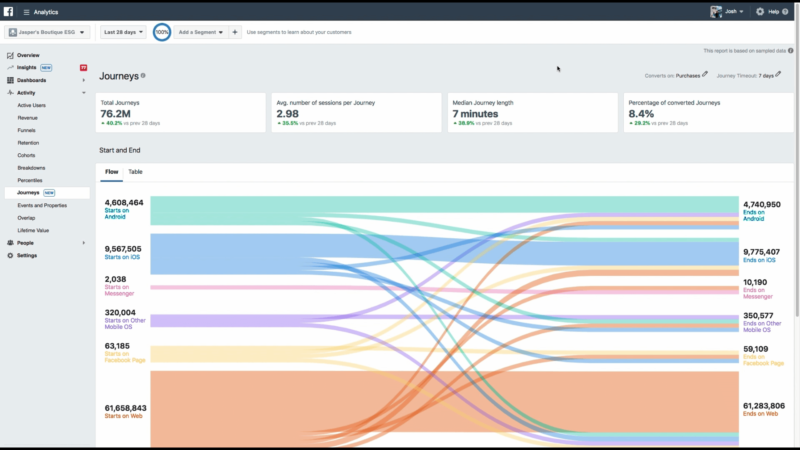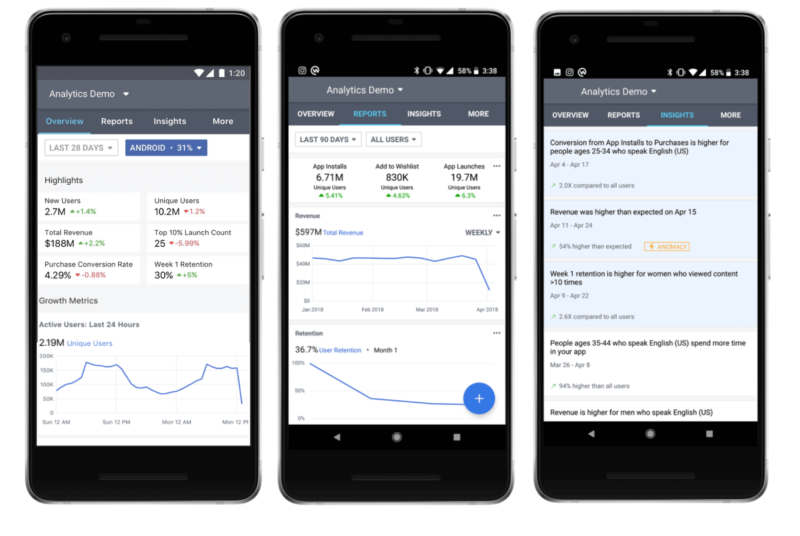Facebook unveils new analytics features, including a tool to track the omnichannel journey
The social media company made this announcement -- and many others -- at F8, its developer conference in San Jose.

Journeys is the most notable addition to Facebook’s currents analytics tools. It provides omnichannel data and reporting, so marketers can see what users are doing right before they take an action that results in a conversion.

Journeys report, for illustration purposes only
The company took special care to note that this data is anonymously aggregated and not tied to any specific individuals’ identities. From the blog post announcing the features:
… as we work to build the future of analytics, we take our responsibility to keep people’s information safe seriously. We carefully built this product to protect people’s privacy. That’s why the insights we report are aggregated and anonymous; and don’t contain individually identifiable information, like emails and phone numbers. As Facebook Analytics evolves, we’ll make sure it’s in ways that work well for both people and businesses.
Facebook continues to reel from increased scrutiny and criticism in the wake of allegations that it provided users’ personal information to data firm Cambridge Analytica, which was then used to influence voters in the 2016 US presidential campaign.
Funnel vision
Facebook’s new analytics can auto-detect sales funnels using machine learning algorithms across channels, which enables marketers to “identify friction in your marketing and product experience, and uncover opportunities to optimize for conversions faster.” The enhancements will also provide insights gleaned from both auto-detected and user-created funnels.
The company is also adding to the automated insights it introduced last year to help marketers discover unusual patterns and correlations faster.
“It’s a new way to access some pretty interesting insights for your business,” the company said in its blog post. “If you know a particular action — certain types of website engagement means users are more likely to download your mobile app, for example — you can optimize your user’s experience to encourage more of that behavior.”
Facebook has also launched a Facebook Analytics mobile app, pictured below.
Contributing authors are invited to create content for MarTech and are chosen for their expertise and contribution to the martech community. Our contributors work under the oversight of the editorial staff and contributions are checked for quality and relevance to our readers. The opinions they express are their own.
Related stories
New on MarTech
